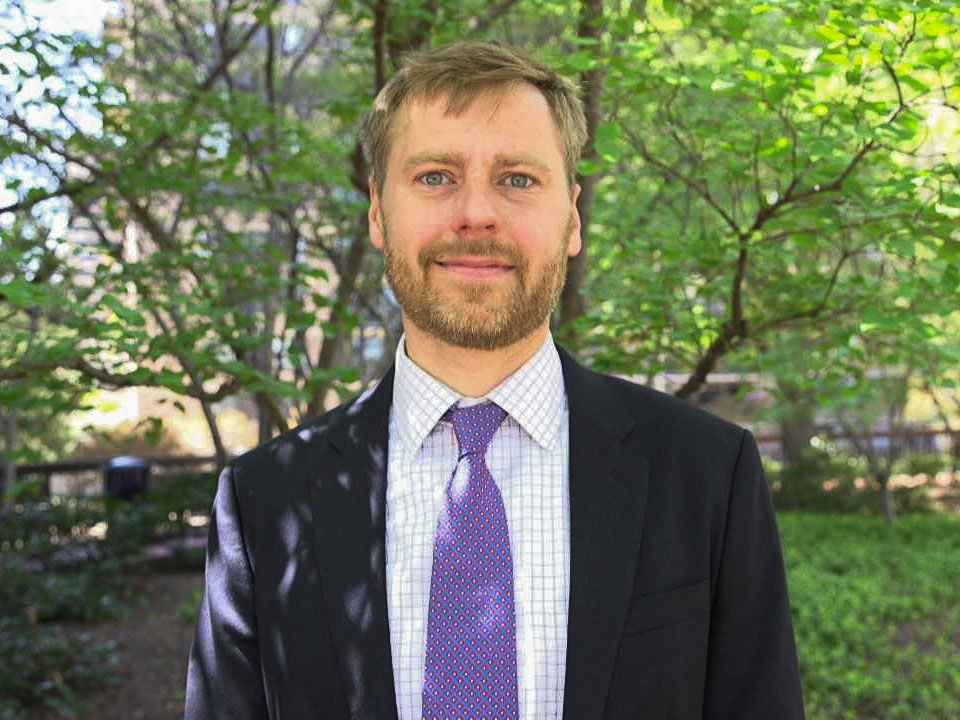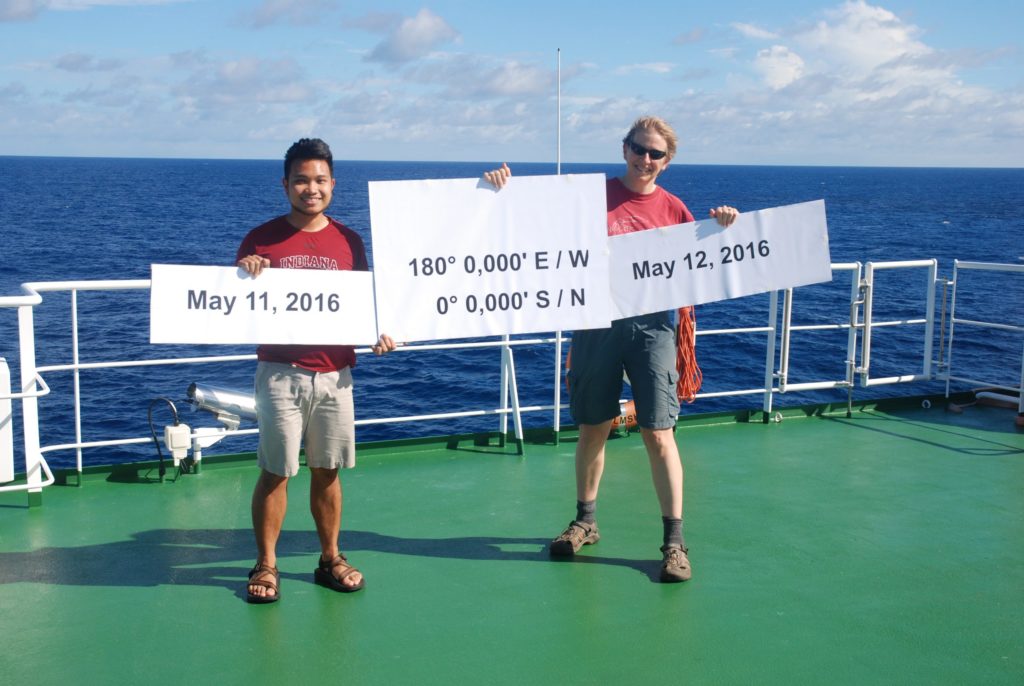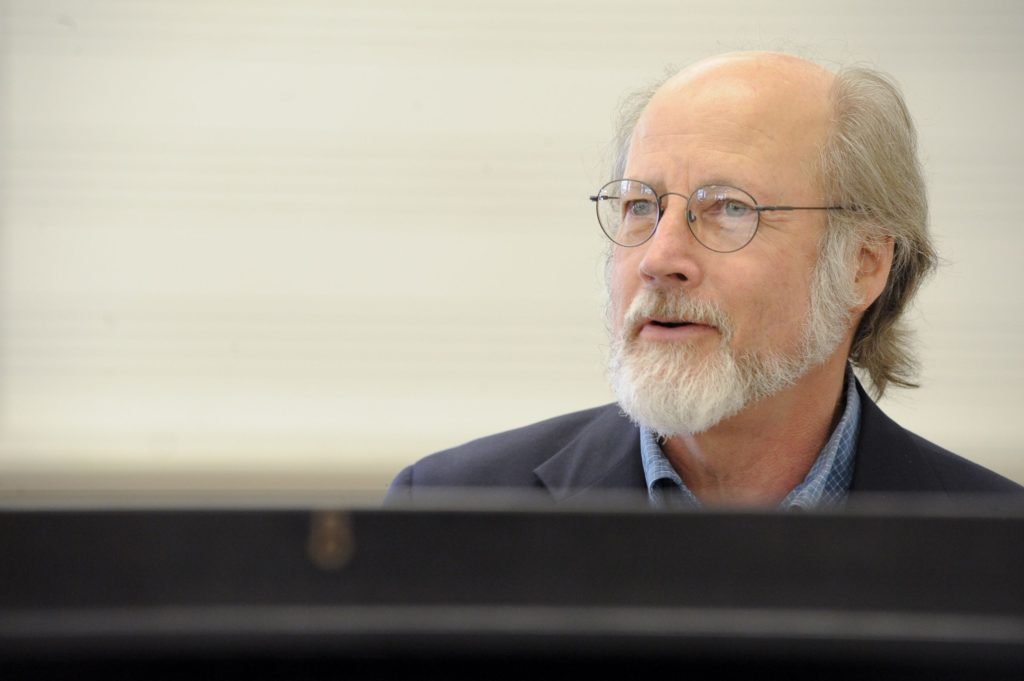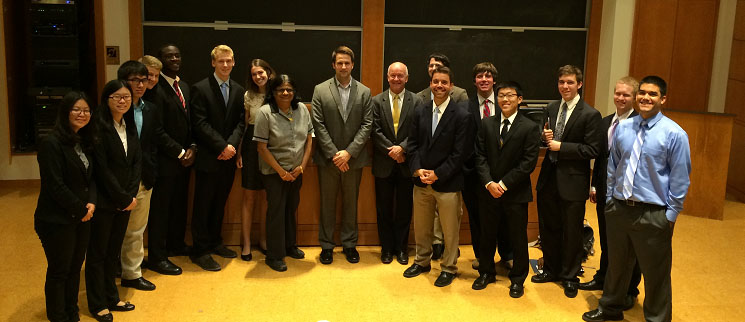
An alumnus with a doctoral degree in history made the most of his opportunities at Carolina and now works with historians, Vietnam veterans in a Department of Defense role.
Andrew Ringlee, a historian for the United States of America Vietnam War Commemoration, says, “I use the research and teaching skills that I acquired during my graduate program at UNC every day in my current position.”
The doctoral alumnus in history talks about seminars, networking and other opportunities that have prepared him for professional success. He also offers advice to current graduate students, including this: “Humanities graduate students should begin preparing for their careers after Chapel Hill from the moment they arrive on campus.”
In reflecting back on your years as a graduate student at Carolina, what experiences did you value the most here at UNC-Chapel Hill?
I was most impressed by the comprehensive education I received from the Department of History at UNC-Chapel Hill. Although my specialty was Russian history, I took advantage of the graduate program’s diverse offerings to take courses in European history, military history and Russian literature at UNC and Duke. I served as a teaching assistant for a diverse range of classes – everything from Russian history, to Native American history, to British history, to the history of sports in the United States – and these experiences gave me the ability to think broadly and creatively about historical education. I twice taught summer courses in United States history, and these opportunities enabled me to design courses on subject materials outside of my specialty. I tutored student athletes and assisted undergraduates with research projects as part of the Graduate Research Consultant program with the Office for Undergraduate Research. These efforts helped me understand the undergraduates’ perceptions of what worked and what did not work in the classroom. Finally, the dissertation afforded me the chance to work independently on a single project over the course of several years. This process involved locating and reading materials in a number of libraries within the United States, and working in over a dozen archives and libraries in Russia on three research trips. I wrote – and with the diligent help of my advisers, edited – a book-length historical study for my dissertation.
We know you recently came back to Chapel Hill to host a career development panel for history graduate students. What advice or thoughts do you have to share with current UNC-Chapel Hill graduate students?
Current graduate students should take advantage of the wide range of opportunities at UNC and in the greater Triangle area to obtain the most diverse educational experience they can during their time in Chapel Hill. For me, voluntary programs and outside work provided as important a component to my education as the instruction I received in the classroom. These experiences, I believe, prepare graduate students to become better professors and enable them to thrive outside of traditional academic jobs. Humanities graduate students should begin preparing for their careers after Chapel Hill from the moment they arrive on campus. This means they should seek mentorship from their more advanced peers, read academic job postings and follow trends in the job market, attend career development workshops organized by The Graduate School and University Career Services, work a part-time job on or off campus during the semester, and complete an internship with an outside organization for at least one extended period of time during the graduate school process.
Are there any specific examples of support – professional development, mentoring, other – that helped you advance your academic and professional goals?
I attended several panels jointly hosted by the UNC and Duke departments of history. These panels brought together alumni who worked in a variety of professions to speak to graduate students about their experiences finding careers outside of academia. I found these seminars empowering, especially because the academic job market was challenging at the time I finished my dissertation. These panels enabled me to learn about promising career opportunities outside of academia and establish relationships with alumni who worked in these fields. I learned of my current position through email correspondence with an alumnus I first engaged at one of these events. Additionally, I attended several career development seminars hosted by The Graduate School and numerous informational sessions on campus by various government organizations and private companies. These activities informed me of the rewarding opportunities out there, enabled me to present myself to employers as an attractive candidate and helped guide me through the entire hiring process.
What should people know about your work?
I use the research and teaching skills that I acquired during my graduate program at UNC every day in my current position. The federal government hires a significant number of historians to work in nearly all of its agencies. I work as an historian for the United States of America Vietnam War Commemoration, an organization created by the Department of Defense to commemorate Vietnam veterans and inform the public of the history of the war. In this capacity, I research and write about historical content on the Vietnam War for the commemoration website, I organize public speaking events and conference panels on the war, I conduct oral history interviews with Vietnam veterans and other individuals involved in the conflict, and I helped research and design the Pentagon’s award-winning Vietnam War Corridor Exhibit. I constantly collaborate with historians from federal agencies, academic institutions, museums and historical societies on a wide range of projects and initiatives.
By Christine Scalora, The Graduate School



